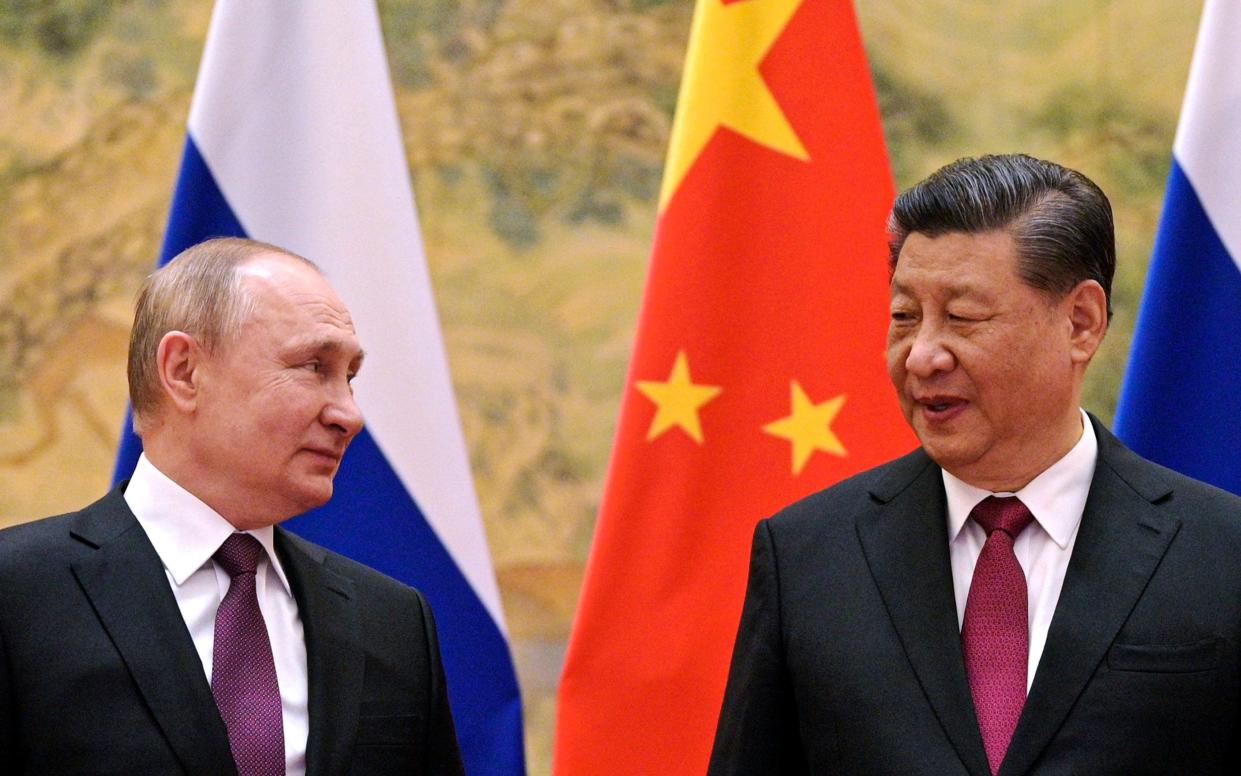China may win Putin’s war in Ukraine for him

- Oops!Something went wrong.Please try again later.
- Oops!Something went wrong.Please try again later.
- Oops!Something went wrong.Please try again later.
Vladimir Putin is calling in his few remaining international allies in his latest push for victory in Ukraine. Foremost among these is China, which last year proclaimed that its friendship with Moscow had “no limits” and “no forbidden areas of cooperation”. Now that cooperation may extend to the military equipment necessary for a Russian victory.
US intelligence indicates that Beijing is preparing to supply Russia with lethal military aid, described by Secretary of State Anthony Blinken as “everything from ammunition to the weapons themselves”. With the war in Ukraine turning into a battle of attrition of ammunition supplies, this could mark an extremely dangerous escalation if the vast Chinese military complex swings into action to help its struggling junior partner – and, potentially, an eventual end to the war on Putin’s terms.
During a rare private meeting held on the sidelines of the recent Munich Security Conference, US Secretary of State Antony Blinken warned his Chinese counterpart, Wang Yi, of “serious consequences” for China should Beijing give in to Russian demands for more overt military aid.
Make no mistake: the West cannot simply hope to keep China out of the fight. We must press ahead with revived diplomatic vigour to counter this threat to Ukraine’s hard-fought battlefield gains, providing Kyiv with the weapons and ammunitions it desperately needs.
While it remains to be seen whether Beijing would dare risk further US and Western sanctions, Xi Jinping’s regime has acted to support Putin’s barbarous war of conquest long before Russian tanks crossed into the Donbas. Intelligence reports indicate that even before the invasion last February, Chinese hackers were engaging in offensive cyber-attacks against Ukrainian military and defence facilities even as Russian armoured columns advanced on the border.
These attacks took place only days after Putin and Xi declared their mutual “friendship without limits” – an authoritarian partnership which has paid financial dividends for Putin over the last twelve months. As the international community has placed unprecedented sanctions on Moscow, China has worked overtime to make up for the short-fall in trading partners. More worryingly, Russia has managed to increase its imports of semiconductors and microchips by 34 per cent despite toughened controls, with Beijing accounting for much of this total.
Semiconductors are some of the most critical components in almost all modern military systems, from missiles and artillery to radars and even anti-tank weapons. If the semiconductors supplied by China are being used by Moscow’s military, then Beijing is already effectively supplying lethal aid.
It is clearly on a pathway to doing so. US officials are already aware of certain Chinese firms sending body armour, helmets, and other non-lethal military equipment directly to the Russian front, and have described “disturbing trendlines” in this process towards lethal arms.
The blinkers are now fully off. Washington, London, and Brussels must now determine how to best counter what will surely be a covert ramping of Chinese military aid joining the long columns already from Pyongyang and Tehran to the Russian front. If dictatorships are willing to supply Russia’s renewed offensives, then the armoury of the free world must be opened to Kyiv.
Robert Clark is the Director of the Defence and Security Unit at Civitas. Prior to this he served in the British military.

